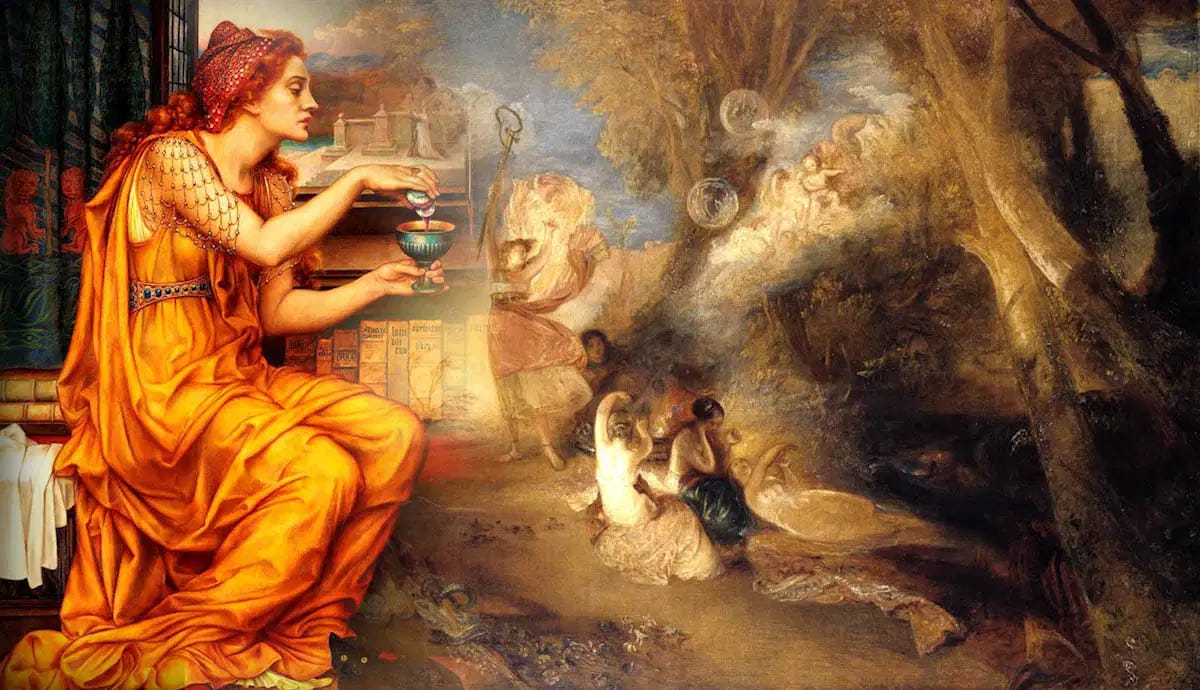How Language Enslaves
"The value of knowing the origins of these words and their mystical power is that they reveal to us clues as to what these words intended to invoke."
Ever since writing Why We Need to Bring Back the Myths — and exploring how the dark forces of old still shape our present — I’ve gone deeper into the world of mythology.
One of the mythological characters I’ve come across is Medea.

In Greek mythology, Medea was a powerful sorceress. She was the granddaughter of Helios, the Sun god, and a priestess of Hecate, the goddess of magic, witchcraft, and the underworld. In the myths, she helps the hero, Jason, retrieve the golden fleece. Jason ultimately betrays her love, and in return, she kills both of their sons.
One of the points I found interesting is how the “Medea” phonetically sounds like “media” known today. In the TV show American Gods, we’re introduced to the goddess “Media,” and she quotes of my favorite lines ever:
“Time and attention — better than lamb’s blood.”
Symbolically speaking, “time” and “attention” can be seen as the two sons that Medea ultimately kills. And just as Medea kills off her future, so does our media destroy our future by stealing our time and attention.
More comparisons between Medea and Media emerge when we remember that Medea, a priestess of Hecate, was deeply versed in pharmakeia — the art of sorcery, poison, and enchanted concoctions.
Modern media — especially social media — mirrors this exactly: it acts as a poison (addictive and mind-numbing), delivers enchanted concoctions (carefully engineered colors, endless scrolls, dopamine-inducing notifications), and performs digital sorcery — manipulating perception, bending perception by algorithmic feeds.
And this will only get worse in the age of AI.
This revelation got me thinking: if a word can phonetically sound the same but have two different meanings or be spelled the same but also have two different meanings, is there something here?
What comes next is my discovery of the origins of words—English words—and their hidden power over our daily lives.
Without further ado, let’s dive right in.
Keep reading with a 7-day free trial
Subscribe to Unorthodoxy to keep reading this post and get 7 days of free access to the full post archives.


